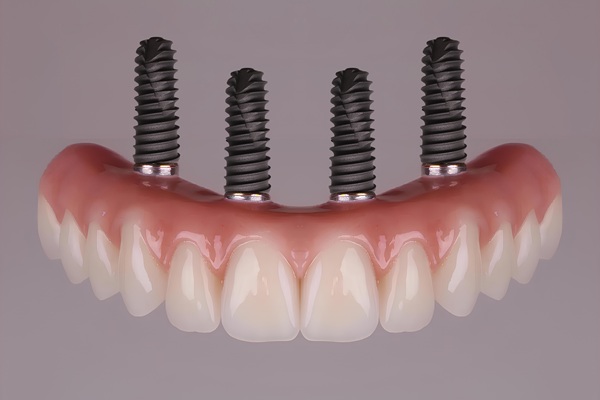What are TMJ Symptoms?

TMJ disorder occurs when the temporomandibular joint is injured or overworked. The joint is responsible for connecting the skull and the jawbone, and it plays an important role in the jaw movement. When TMJ disorder develops, symptoms develop and can worsen without appropriate treatment.
A detailed review of TMJ symptoms
There are many different symptoms of TMJ disorder, but some TMJ symptoms are more common than others. Four of the more commonly reported symptoms of TMJ include jaw pain and soreness, stiff or locked jaw, chronic ear pain and a clicking sound in the jaw.
Jaw pain and soreness
Jaw pain is perhaps the most common symptom of TMJ disorder. This is because the TMJ plays a direct role in the function of the jaw. When the joint becomes injured, then the jaw has a harder time functioning properly, which can lead to pain. Jaw soreness is also common, especially if the cause of TMJ disorder is teeth grinding. This is because the jaw becomes worn-down and overworked, leading to the jaw feeling weak and sore.
Stiff or locked jaw
Stiff or locked jaw occurs when the temporomandibular joints become locked. This can also lead to other symptoms as well, such as difficulty chewing. The severity of this symptom varies. Minor stiffness is not a huge concern, but a locked jaw that is difficult or impossible to open requires prompt attention from a dentist. There are several ways a dentist can treat this symptom. They may seek to relieve inflammation and soreness through anti-inflammatory medication, along with ensuring the jaw is protected by wearing a mouthguard at night.
Chronic ear pain
TMJ disorder affects more than just the jaw. The pain can also spread to the ear and other parts of the face as well. When this occurs, it is a sign that the TMJ disorder is more serious and requires diagnosis and treatment from a dentist. More severe instances may also affect the person’s ability to hear, and there may also be a popping sound in the ear and pain in the temple area.
Clicking sound in the jaw
The dentist will likely check to see if there is a clicking sound in the jaw when diagnosing patients who show other symptoms of TMJ disorder. A jaw may produce a clicking sound while opening and closing due to injury or soreness of the temporomandibular joint. Although this symptom is not overly severe, it does often suggest a trip to the dentist for diagnosis and treatment is necessary as it is a sign of a larger concern. Without prompt treatment, TMJ disorder can grow worse and make the treatment more invasive and expensive.
Receive a TMJ diagnosis from an experienced dentist
If you have symptoms of TMJ disorder and want to arrange a consultation visit with an experienced dentist, then reach out to our friendly dental team today. We are glad to help you with an accurate diagnosis of your symptoms as well as explaining all available treatment options so that you can make an informed decision.
Request an appointment here: https://www.leixdental.com or call Leix Dental at (815) 604-6104 for an appointment in our Lakewood office.
Check out what others are saying about our services on Yelp: Read our Yelp reviews.
Recent Posts
A complete health dentist emphasizes the relationship between oral health and general health. These dentists provide treatment that acknowledges oral health’s effect on the body. They do not just treat dental issues. These dentists also help patients make decisions about their general health. Keep reading to find out more about complete health dentistry.Complete health dentistry…
All-on-4® is an option for people who need to replace an entire upper or lower arch of their teeth. For many people, this is the solution that they have been waiting for. Because it works as a dental implant that creates an anchor for prosthetic teeth, it means that these restorations do not shift around…
When searching for a dentist near me, it is important to find someone who provides excellent care and makes every visit a positive experience. A great dentist combines skill, modern tools, and a patient-focused approach to help maintain and improve your oral health. Whether you need a routine checkup or a more complex procedure, choosing…
Periodontics is a branch of dentistry that focuses on studying, diagnosing, and treating issues that affect the gums and the bone structures that support teeth. Periodontal disease is the leading dental problem that periodontics focuses on.Periodontal disease is an infection of gum tissues caused by the bacteria in plaque and tartar getting below the gum…


